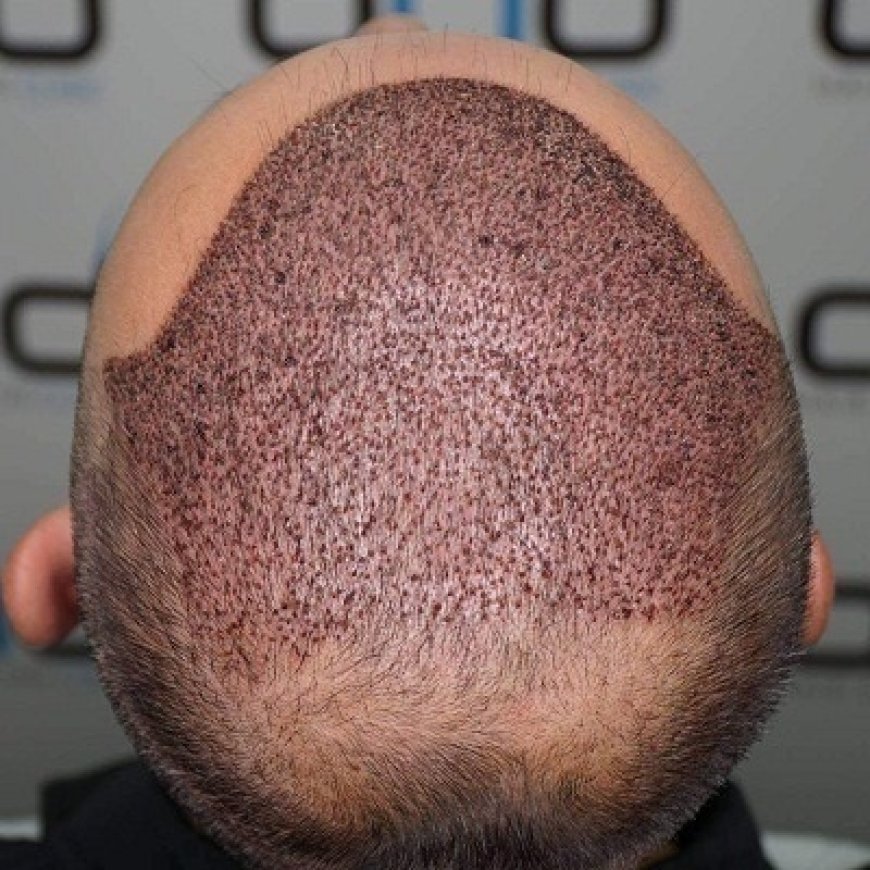Who is a suitable candidate for a hair transplant?
Discover professional hair transplant in Islamabad at SKN Cosmetics clinic. Get natural, lasting results with advanced techniques tailored to your needs.

Hair loss can impact self-image and confidence, prompting many individuals to consider surgical solutions like a Hair transplant in Islamabad. While this procedure has become increasingly advanced and effective, not everyone experiencing hair loss is an ideal candidate. A successful hair transplant depends on several factors, including the type of hair loss, donor hair quality, and overall health. Understanding the criteria for suitability helps determine whether this treatment is appropriate for your condition.
Types of Hair Loss and Their Suitability for Transplant
The cause of hair loss plays a critical role in assessing candidacy for a hair transplant. The most suitable candidates typically experience:
1. Androgenetic Alopecia (Pattern Baldness):
This is the most common type of hair loss in both men and women. It usually follows a predictable pattern—receding hairline or thinning at the crown. Individuals with this type of permanent hair loss are often excellent candidates because the donor areas (usually the back and sides of the scalp) remain unaffected and can supply healthy follicles for transplantation.
2. Stable Hair Loss:
Hair loss that has stabilized over time is another criterion for suitability. If the hair loss is still progressing rapidly, a transplant may not yield lasting results. Waiting until the hair loss has plateaued allows for more effective planning and placement of grafts.
Characteristics of a Suitable Candidate
Several physical and medical factors must align to ensure the success of a hair transplant:
1. Adequate Donor Hair Supply:
A person must have enough healthy hair follicles in the donor area to support a transplant. The density, thickness, and texture of donor hair affect how natural and full the final results will appear.
2. Age and Maturity of Hair Loss:
Most surgeons recommend that candidates be at least in their mid-20s. This allows the hair loss pattern to become more predictable, helping prevent the need for multiple corrective procedures in the future.
3. Good General Health:
Candidates should be in good physical health, free from conditions that impair healing or increase the risk of complications. Chronic conditions like uncontrolled diabetes or autoimmune disorders may disqualify a patient unless properly managed.
4. Realistic Expectations:
Understanding the limitations and potential outcomes of a hair transplant is crucial. While the procedure can significantly restore appearance, it may not produce the same density as natural hair or fully reverse advanced baldness.
Unsuitable Candidates for Hair Transplant
Not everyone experiencing hair thinning or bald patches qualifies for surgery. Some examples include:
-
People with Diffuse Unpatterned Alopecia:
This type of hair loss affects the entire scalp, including the donor areas. Because the donor hair may also be unstable, results from a transplant would be unpredictable and less satisfactory. -
Alopecia Areata or Other Autoimmune Hair Loss:
Autoimmune-related hair loss often recurs in patches and can damage transplanted follicles. These cases are typically better managed through medical treatment rather than surgery. -
Young Patients with Rapidly Advancing Hair Loss:
Younger individuals with aggressive hair loss may not be good candidates because the pattern is still evolving. Early surgery can result in unnatural patterns as hair continues to recede. -
Unrealistic Goals:
Candidates expecting instant or overly dense results may be disappointed. It’s essential to consult with a specialist who can explain what the procedure can realistically achieve.
Preoperative Evaluation
Before proceeding with a hair transplant, a comprehensive consultation is conducted. This includes:
-
Medical and Hair Loss History:
Your surgeon will review your health records, medications, and family history of hair loss. -
Scalp Examination:
A detailed analysis of your scalp helps determine donor hair availability, scalp condition, and the best areas for transplantation. -
Photographic Assessment:
Standardized photographs help track progress and assist in surgical planning.
These evaluations ensure that the surgical plan aligns with your condition, expectations, and long-term hair restoration goals.
Hair Transplant Techniques and Their Implications
Candidates must also be informed about the available techniques and how they align with individual needs:
-
FUE (Follicular Unit Extraction):
Ideal for those wanting minimal scarring and shorter recovery time. Hair follicles are individually extracted and implanted. -
FUT (Follicular Unit Transplantation):
More suitable for patients requiring a higher volume of grafts. It involves removing a strip of scalp to extract follicles.
Each method has its benefits and potential drawbacks, which your surgeon will explain during the consultation.
The Importance of Choosing the Right Clinic
The success of a hair transplant heavily depends on the expertise of the surgeon and the quality of the facility. Look for a clinic that offers:
-
Board-certified surgeons with experience in hair restoration.
-
Advanced techniques like FUE and FUT.
-
Customized treatment plans based on your hair type and pattern.
-
Proper follow-up care and guidance throughout the recovery period.
Conclusion
A hair transplant can be a highly effective solution for the right candidates—typically those with permanent, stable hair loss and healthy donor hair. However, it requires a thorough evaluation of scalp condition, overall health, and expectations to determine eligibility. The choice of clinic and surgical expertise also plays a vital role in achieving natural-looking, long-term results.
For expert evaluation and personalized care, the SKN Cosmetics clinic in Islamabad provides comprehensive hair restoration services tailored to each patient's needs. Their team of skilled professionals ensures a thorough assessment and employs advanced techniques to deliver optimal outcomes. To explore your candidacy and learn more, visit the SKN Cosmetics clinic.
What's Your Reaction?
 Like
0
Like
0
 Dislike
0
Dislike
0
 Love
0
Love
0
 Funny
0
Funny
0
 Angry
0
Angry
0
 Sad
0
Sad
0
 Wow
0
Wow
0








































